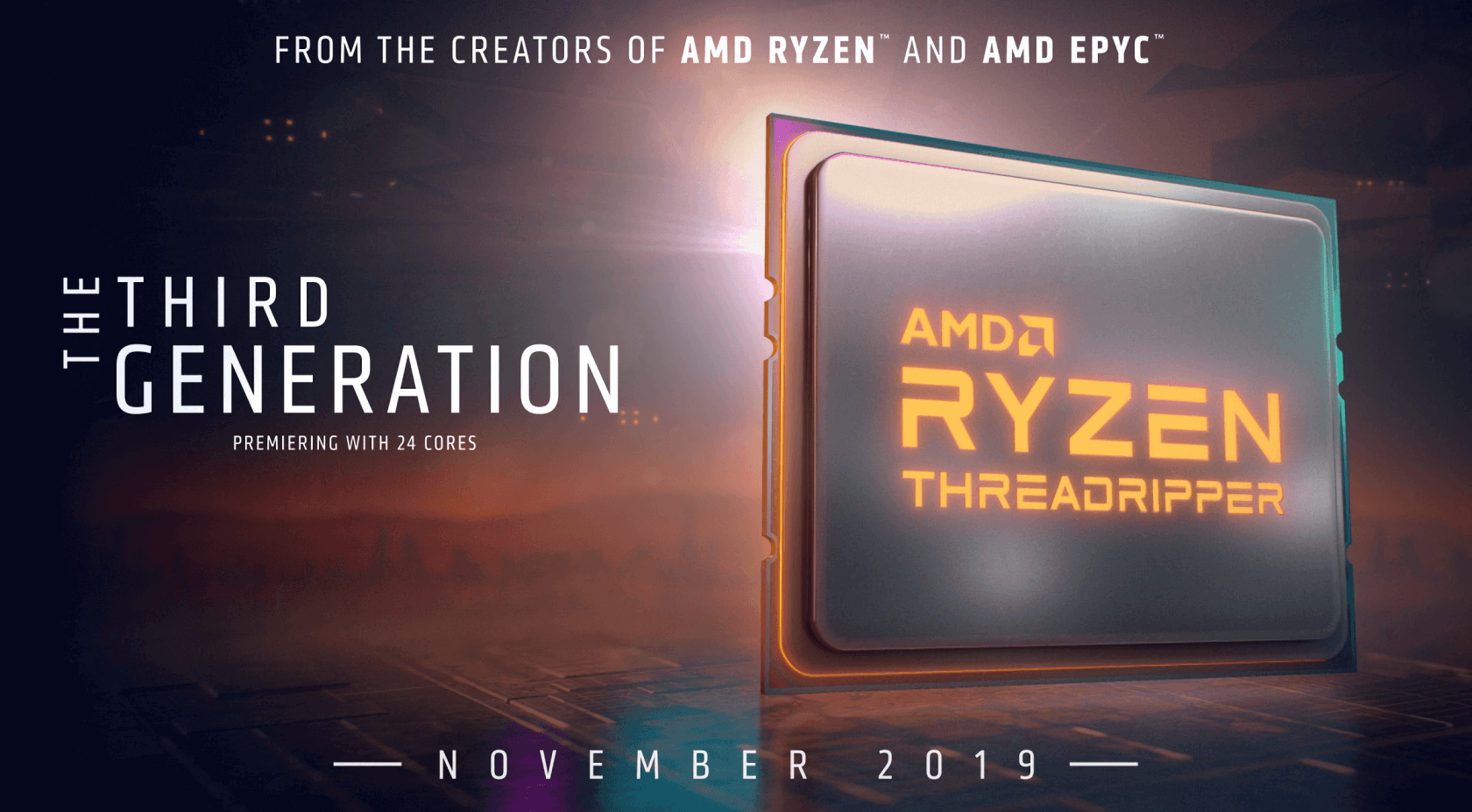
In the realm of high-performance computing, AMD undoubtedly has the advantage in today's market. As we note in our Best CPUs of 2019 line-up, the company's 7nm Ryzen 9 3900X offers better workstation performance than its similarly-priced competition, while still holding its own in the gaming front.
We also pointed out in our piece that AMD's Ryzen 9 3950X is just around the corner; in fact, the chip was supposed to launch this month with 16 cores, 32 threads, and a base clock speed of 3.5Ghz. Unfortunately, if you were holding out hope for a timely release, we've got some mixed news for you today: the 3950X has been delayed to November (no specific day has been announced) so AMD can better focus on meeting the "strong demand" for existing 3rd-gen Ryzen offerings.
Now for the "mixed" part of the news: while the 3950X won't be launching as soon as previously stated, AMD softened the blow a bit by announcing its third-gen Threadripper CPUs. Sadly, the company didn't offer much in the way of details, other than a vague claim that they will "premiere" with 24 cores. Regardless, the chips will also be launching in November, so PC hardware enthusiasts won't be starved for choice over the holiday season.
The relevant portion of AMD's statement is as follows:
We are focusing on meeting the strong demand for our 3rd generation AMD Ryzen processors in the market and now plan to launch both the AMD Ryzen 9 3950X and initial members of the 3rd Gen AMD Ryzen Threadripper processor family in volume this November. We are confident that when enthusiasts get their hands on the world’s first 16-core mainstream desktop processor and our next-generation of high-end desktop processors, the wait will be well worth it.
Naturally, we don't recommend that any of our readers go out and try to snag one of these chips on day one. As always, we advise you to wait for reviews and benchmarks (such as our own) before making a purchase decision.
However, given AMD's track record in the CPU market as of late (barring some supply issues), we'll be surprised if the company's upcoming products don't set new performance or value standards in their respective price brackets.
https://www.techspot.com/news/82000-amd-announces-third-gen-24-core-threadripper-chips.html